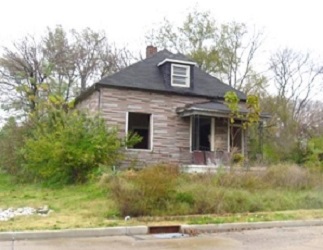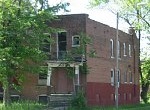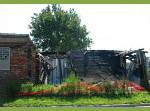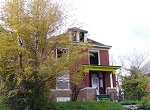An Overview of How Code Enforcement Can Help You Make and Keep a Good Community
Last updated: November 20, 2025
Expect this code enforcement overview to describe the steps that cities and towns can take to assure compliance with their local laws. However, I have to caution that you will find variation from place to place both in the process and in the rigidity of it. In the context of community improvement work, the term pertains to both property upkeep and standards for new construction.
Typically, these local laws refer to internationally devised codes compiled by experts. Violation of these codes is handled as a civil matter, not a criminal one, in most places in the U.S., at least unless the violation is persistent, severe, and defiant. In that case, there are some isolated instances when a pattern could become criminal.
Rural code enforcement, meaning activities of counties or smaller towns, cities, and villages, often is less detailed than what happens in an urban setting, and if the curiosity that brought you to this page is focused on a rural community, feel free to click right over to the rural code enforcement page. Otherwise, you are all welcome to stay here.
Codes most often cover the exterior maintenance and integrity of structures, plumbing and electrical health and safety, overgrown vegetation, outdoor storage, standards for remodeling, provisions for fire safety and health in commercial establishments, and many other such details. Codes for energy conservation, hurricane protection, handicapped accessibility, or other local priorities also may be adopted. The building code deals with new construction. A zoning ordinance is a type of code as well, but a separate section of this site delves into that complex subject; see the menu if that is your interest.
If you know right now that you want to learn about a specific type of code, we can refer you right away to the following pages. However, if you have any doubts at all about the process, it will be best to continue reading this page before leaping over to the information about a specific code type.
I have been in charge of municipal code enforcement operations. The resounding take-away from those experiences has been the importance of sensible but assertive approaches to bringing property owners into compliance with the law. I also believe in prompt starts to the enforcement process, although this does not mean that you refuse to give a reasonable amount of time for compliance.
In one instance, I was called at 8:30 a.m. on a rainy Monday morning because the neighbors had taken out an old toilet over the weekend and left it on their patio. Because I acted right away in sending out the inspector, and in fact drove over there to see for myself, the complaining neighbor was neutralized and later apologized for her behavior. This happened in spite of the fact that we were unable to cite a code violation since the item had been left outdoors for only about 36 hours at the point when we made the visit. Yet when we contacted the property owner in a friendly, informal fashion, the offending toilet was moved to a garage in less than half an hour. That's what we want.
Code enforcement can be an important part of maintaining the appearance, functioning, and property values of a neighborhood. Savvy neighborhood groups rely on code enforcement for bringing properties up to a minimum community standard.
We have said the goal of code enforcement is to motivate compliance, and we said nothing about punishment. Emphasizing punishment is a big mistake, even if neighbors and code enforcement officers find a property owner's behavior and attitudes to be deplorable.
It is not unusual for property owners to feel that the inspectors charged with code enforcement are too hostile in either their attitudes, behavior, or invasion of privacy. In fact, if you look over the code enforcement questions and answers on this website, you will see a number of instances of our website visitors thinking that inspectors are picking on them. We will talk about those issues at the end of this piece.

Value of Codes to a Neighborhood
Some codes are directed toward making sure that buildings are safe. This includes both the building code, which typically enforces standards for new construction, and the existing building code, which may deal with matters such as renovation. Specialized codes such as a plumbing code or electrical code, which might be treated as separate codes where you live and are commonly referred to separately by people in the building trades, also are included in this basic health and safety set of criteria.
Older neighborhoods especially need to rely on code enforcement to make sure that buildings are maintained sufficiently to keep up property values and also to keep pace with new technologies and safety research. Remember there is a standard property maintenance code that your city can adopt.
While property owners often think that the way they take care of their property is their own business, the major impact that neighboring properties have on one another's value and enjoyment means that building maintenance and safety becomes the business of everyone in the neighborhood.
When you hear someone loosely talking about code violations and why the city isn't enforcing the codes, the first question to ask yourself as a neighborhood leader is whether your town actually has adopted by ordinance a code that would cover the offending situation.
If so, you might have a clear path toward making property owners accountable for maintaining their buildings (both the main building and any garages, storage sheds, and such). You also may have a way to deal with some ugly or inappropriate things people keep outdoors, although we have to warn you that codes often don't address some of the worst aesthetic decisions that people make!
If your neighbor leaves their old sofa on the porch, and you don't like it, that doesn't necessarily mean it is a code violation. Your particular code would have to speak directly to the situation. Although there's a bit of personal judgment on the part of the inspector involved, it doesn't stretch far. Codes do not necessarily address everything that you might find offensive aesthetically. I hope you can appreciate that what you may think is an "old sofa" might be considered a quirky porch chair by your neighbor, or even a valuable antique. In the end, your local codes won't address anything and everything you might find ugly, but they certainly help maintain a basic standard.
I also have included a page on vacant building registration on this website. Even though a vacant property registration ordinance isn't really considered a code (except in the sense that all local ordinances are part of the local "code" or "code of laws"), the aim of requiring vacant building owners to register is code compliance, as far as we are concerned. These laws represent an emerging trend that dovetails nicely with some of the codes I describe on this page.
Implementing a Quality Code Enforcement Program
If you are an elected official or a local government staff member, you can see that setting the standards for code enforcement can be challenging. If you keep in mind compliance as the goal rather than punishment, your vision becomes clearer. From that standpoint, we see that reasons for lack of compliance include not only
defiance and carelessness, but also lack of knowledge about how to remedy the
problem and inability to afford the needed repairs. In some cities, there is a genuine shortage of competent contractors, especially when specialized work is involved.
A good municipal or county code enforcement program should be supplemented by providing resources for finding good advice and for obtaining financial assistance if needed. In other words, policies and programs, as well as finding and prosecuting violations of the law, are encompassed in a quality code enforcement program.
A few progressive communities have established formal or informal systems, inside of either the government or a non-profit organization, to handle neighbor disagreements within a mediation framework. It's a splendid idea, especially for recurring feuds where neighbors simply don't get along. This is more common than you might imagine.
If you have access to a mediation center, this can be a useful alternative to traditional code enforcement methods, especially in areas where hostility toward government in general is brimming over. While trained mediators can help bring people into compliance when the dispute is primarily between two neighbors, my experience has been that it is less helpful when a large segment of the neighborhood feels impacted and thus the problem is not as much a disagreement between two parties as it is a societal disapproval of certain actions.
I also like the process of creating formal compliance agreements, which act like mini-contracts between the municipality or county and the property owner. They also could involve third parties such as neighbors or neighborhood associations. Obviously this should be reserved for major problems and is not relevant when one property owner's grass is too tall, for example.
Your active interest in the quality and impacts of your code enforcement program can make a big difference in how your communities look, the attitudes of your citizens toward local government, and property values and business investment in your community.
Tips for Neighborhoods Dealing with Nuisances
- First, I should note that in some cities, all code violations are called nuisances, and nuisances sometimes confer a special status under state law. In some states, nuisance law is quite ambiguous and therefore not very helpful. However, we are using the term in a general way here.
- Whether your enforcement is systematic or complaint-based, watch your manners with code inspectors. Surprise, surprise, you'll get more done if you're nice to them!
- Nevertheless, persist if you have a situation in your neighborhood that is not being resolved. But before you repeat your complaint, ask questions about whether the property owner actually was cited, any communications received from the property owner, any summons to court and the disposition of the matter in court, so that you will not be complaining again if the property owner was sent to court and given a grace period for compliance or found by the judge not to be in violation.
- A major issue in some places is that the municipal judges may not be very sympathetic with the neighborhood. If you're the person complaining, it's not always fair to blame the inspector; sometimes it's the judge who lets the property owner off with a wink. To deal with this situation, you will need to provide plenty of documentation to your mayor and city council, who usually will be reluctant to interfere with their judge.
- If you feel that your code enforcement officers are biased against your neighborhood or feel it is futile to write up violations in your neighborhood since people cannot afford to comply, be especially careful not to complain about situations that annoy you but that are not actually in violation of the code. All cities, towns, and counties with codes should have an inspection copy of that code available for you to read; neighborhoods could divide up the work of reading different parts of the codes and noting provisions most likely to apply to them.
- If you get a reputation with the code official of being a pest, you won't have the attention you deserve when a genuinely obnoxious situation presents itself.
- Especially if you're reading this as a leader in a neighborhood association, and you provide excellent information about potential code violations, this builds good will at city hall.
- If you want to complain anonymously, most places allow that. However, be sure to give enough detail and a correct address. You think this is really a silly thing for me to say, but I assure you that many folks call and just think the city knows about the yellow house on the corner. Since figuring out what that means gets a little frustrating for the code enforcement officer, don't expect results any time soon if you leave vague information.
- If you're in a smaller town that hasn't enacted any codes, you can become an educator of your local city council or whatever it is called in your location. Explain that someone else actually writes these standard codes and their only job will be to pass a simple ordinance to adopt the code, adding in any exceptions or changes that they want. Your town doesn't have to write codes by themselves or hire a consultant to do it, so there is no need to fear major expense at the outset.
- When code enforcement fails to address a problem, and that will happen, your neighborhood or community organization should meet face-to-face with the property owners themselves. If this happens frequently, appoint a committee that can figure out the right approach to property owners in your locale.
Opposition to Code Enforcement
Many people resist the very idea of code enforcement, especially those whose lifestyle often makes them a target. Folks with a strong libertarian bent, artists, and eccentric people of all stripes will argue against the entire idea or a particular application of the law.
We've had a couple of interesting exchanges with our site visitors about the limits of code enforcement and avoiding code violations. Anti-code enforcement sentiment among casual site visitors has increased substantially over the years since we started this website. A number of these have to do with inspector behavior and perceived intrusiveness. See our answers to visitor questions about homeowner rights in terms of code enforcement, code enforcement right to enter property, one saying the inspector entered the home, and another on threatening behavior by code officers. Then sometimes there are allegations of favoritism, such as the answered question about elected officials and ordinance enforcement.
It's true that in some areas, usually upscale suburbs, code enforcement employees become unreasonably aggressive in response to pressure from elected officials who hear from vocal complainers. Of course inspectors can succumb to the same temptations of too much power that police face.
If your neighborhood association thinks the enforcement program is too intolerant, one or two of you should meet with elected officials about the delicate balance between too much enforcement and not enough.
Wise use of standard international codes, typically developed and led by the International Code Council right now, can improve the safety, appearance, and longevity of the community's buildings. It can improve property owners' return on investment and preserve your reputation as a fine neighborhood or town in which to live.
The benefits of adopting and enforcing good codes far outweigh the infringement on unfettered personal liberty. Yes, it is tough to persuade citizens and leaders of this fact within rural areas, so see the page on code enforcement in rural areas for a two-phase approach more specific to rural environments.
Nonetheless, even the target of an enforcement action benefits from the increased property value that may result. When code enforcement is opposed in a blanket way, it simply means that individual prosperity and whims are considered to be always more important than the joys and benefits of being in community.
- Making and Keeping a Good Community > Code Enforcement
Join GOOD COMMUNITY PLUS, which provides you monthly with short features or tips about timely topics for neighborhoods, towns and cities, community organizations, and rural or small town environments. Unsubscribe any time. Give it a try.





